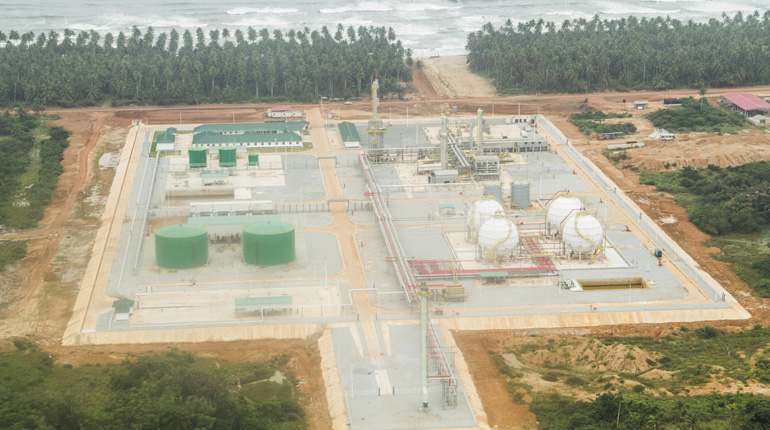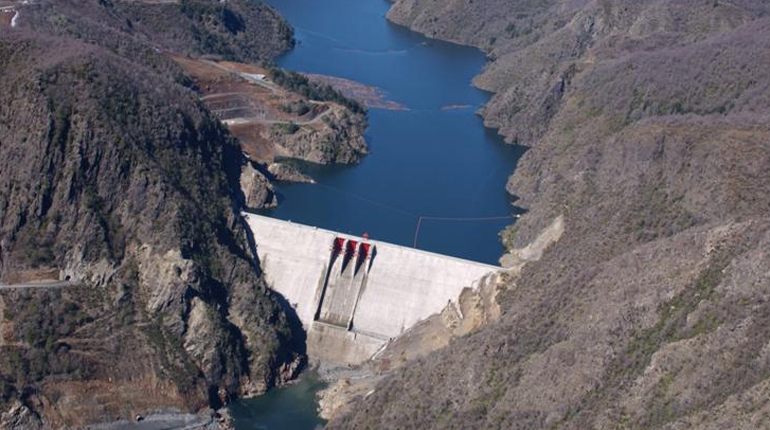Ireland faces up to supply security vulnerability
Dublin is taking steps to remedy Ireland’s susceptibility to gas supply disruptions, but the country's high cost base and a desire to keep costs down may be problematic.
 Poolbeg gas-fired power station in Ireland. The white paper made no mention of more gas power plants. (ESB)
Poolbeg gas-fired power station in Ireland. The white paper made no mention of more gas power plants. (ESB)
A white paper published by the Irish government on Wednesday has shone a spotlight on Ireland’s vulnerability in the event of a significant disruption to the European gas network.
"Ireland is particularly vulnerable to a gas supply disruption […] [N]o strategic gas storage, and very limited operational gas storage capacity […] makes Ireland vulnerable in the event of a prolonged gas supply disruption in Europe," warned the report, titled Ireland’s Transition to a Low Carbon Energy Future 2015-2030.
The Corrib field is expected to provide enough gas to supply 42% of all of Ireland’s gas needs in its first two years of its operation, but it is largely considered a short-term, stopgap solution to the country’s security of supply issues.
"Corrib is very temporary. A couple of years [to the early 2020s] and that’s the end of that," Ronan MacNioclais, oil and gas partner at PricewaterhouseCoopers, told Interfax. "You need some other source."
And while technically ready to flow first gas, it still is not clear when exactly Corrib will come onstream, even though a 2016 start date seems reasonable. The project is waiting on ministerial approval, while a High Court case was opened on 4 December seeking to set aside the Environmental Protection Agency’s decision to award the project a pollution licence.
Keeping costs down was a recurring theme of the report, although the government highlighted it would provide funding for an extension of one of Ireland’s gas interconnectors – which present what the International Energy Agency has referred to as a "single point of failure".
Ireland’s gas supply comes largely from two interconnectors to Scotland. A new section will be added to the existing gas pipeline from Cluden to Brighouse Bay in southwest Scotland, which will twin a 50 km stretch of pipeline. The development has been granted EU funding as a Project of Common Interest (PCI).
A PCI project that has not been able to secure EU funding is the Shannon LNG terminal. For this reason, and because of regulatory issues, its backer United States-based Hess is now looking to sell the project.
"It’s hard to see anyone spending the kind of money that’s required on an LNG train at the moment," said MacNioclais.
The white paper, meanwhile, states: "While gas storage infrastructure has the potential to improve energy security and be of strategic value to Ireland, the cost is likely to be significant."
The government claims it will "conduct a thorough analysis of options for increased gas storage" and will work with its Northern Ireland counterparts "to monitor and support relevant gas and electricity infrastructure proposals".
Exploration deflation
"What’s in the white paper for exploration was reasonably well flagged. It’s what we’d expected to see," commented MacNioclais. "I think they recognise we need to continue to explore in the hope that we find something. Unless there’s a very large find, it would be about substitution, so we could produce enough gas for our own consumption."
Ireland’s latest oil and gas exploration licensing round drew huge interest, but MacNioclais is not overly excited.
"It’s good to see there’s been interest from at least one major, but it’s hard to know whether the majority of the applicants have resources to develop anything," he said. "I think a fair number of those involved are going to be modest organisations."
Ireland’s high cost base is an obstacle in the current price environment, he added. "While the 2014 fiscal terms provide more certainty and allow companies to plan, they are unlikely to generate more activity. The big issue is where they get the money to do the drilling – the fiscal terms are more negative than they were. It seems like an odd way to encourage business at a time when prices are low."
Other gas projects
Gas accounts for nearly half the power generated in Ireland, and while the share of oil and gas in the electricity mix may fall over the next 50 years, there will still be a considerable need for fossil fuels over the next 20-30 years, the white paper conceded. However, there was no mention in the report of increasing the number of gas-fired power plants.
Other elements presented included an overview of the legislative work programme for the regulation of the electricity and gas markets, which will be published by mid-2016, and the aspiration to develop a biogas industry.
It was confirmed a decision on fracking policy will wait on the publication in 2016 of the findings of a cross-border research programme with the UK.
A new National Energy Forum was also created that will aid in the monitoring of progress towards the white paper’s goals, which generally espouse EU policy directions – including the ‘active citizens’ initiative.
Liked this article?
Sign up for exclusive, accurate and up-to-date natural gas news, analysis and intelligence, with global coverage of every phase of the gas chain.
By logging in or signing up for a free trial, you are agreeing to our terms and conditions, privacy policy and cookie policy.







